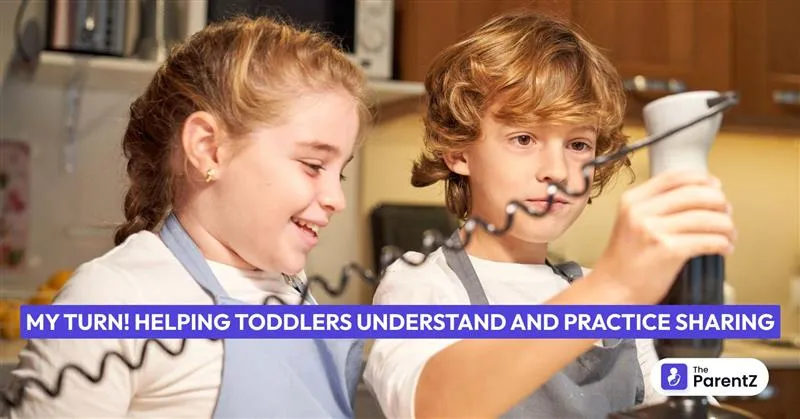If you've ever watched your toddler scream ‘Mine!’ while clutching a toy like it's buried treasure, you're not alone. Sharing might seem like a basic social skill to adults, but to a toddler, it feels a lot like loss.
In those early years, your child isn’t being rude or selfish—they’re learning how to understand the world. And in their world, giving something away—even temporarily—can feel scary. Fortunately, sharing is a skill, and just like walking or using a spoon, it can be gently taught.
Read this article to explore how you can help your little one move from ‘Mine!’ to ‘Your turn.’
Why Is Sharing Hard for Toddlers?
Toddlers are still figuring out the concept of ownership. If it’s in their hands, it’s theirs. If it was once in their hands, it’s also still theirs. That colorful truck they saw another child touch across the park? Somehow… still theirs.
This isn’t because they lack empathy—it’s because their brains are still developing it. Most toddlers don’t yet have the ability to fully understand another child’s perspective or delay their own gratification.
Start with Taking Turns Instead of Sharing
Instead of saying, “You need to share,” try shifting the language to “Let’s take turns.” It feels more manageable and less threatening. Sharing can sound vague to toddlers—taking turns is action-based and time-limited.
Even better, use a timer. When the buzzer goes off, it’s the next child’s turn. The sound helps take the blame off you and places the “decision” on something neutral.
Use Real-Life Moments to Model Sharing
Toddlers are expert imitators. When they see you sharing—your food, your time, even the remote—they’re watching and learning.
These small, casual moments plant seeds. They teach your child that sharing isn’t about losing—it’s about connection.
Praise the Process, Not Just the Outcome
When your toddler does share (even reluctantly), go big with praise. By naming the behavior and attaching it to a positive feeling, you help your child associate sharing with goodness, not loss.
This helps them feel seen—and builds resilience.
Create Safe Spaces for Solo Play
Believe it or not, your toddler doesn’t have to share everything all the time. In fact, having a few “special” toys they don’t have to share can help them feel more in control and more willing to cooperate with others.
This teaches boundaries and generosity—two sides of the same coin.
Conclusion
Teaching a toddler to share is like building a muscle. It takes time, repetition, and lots of encouragement. Some days will be better than others. Some toys will be easier to part with than others.
But with your help, your child will slowly start to see that sharing is about connection, fairness, and learning how to be part of a world that includes others.





Be the first one to comment on this story.